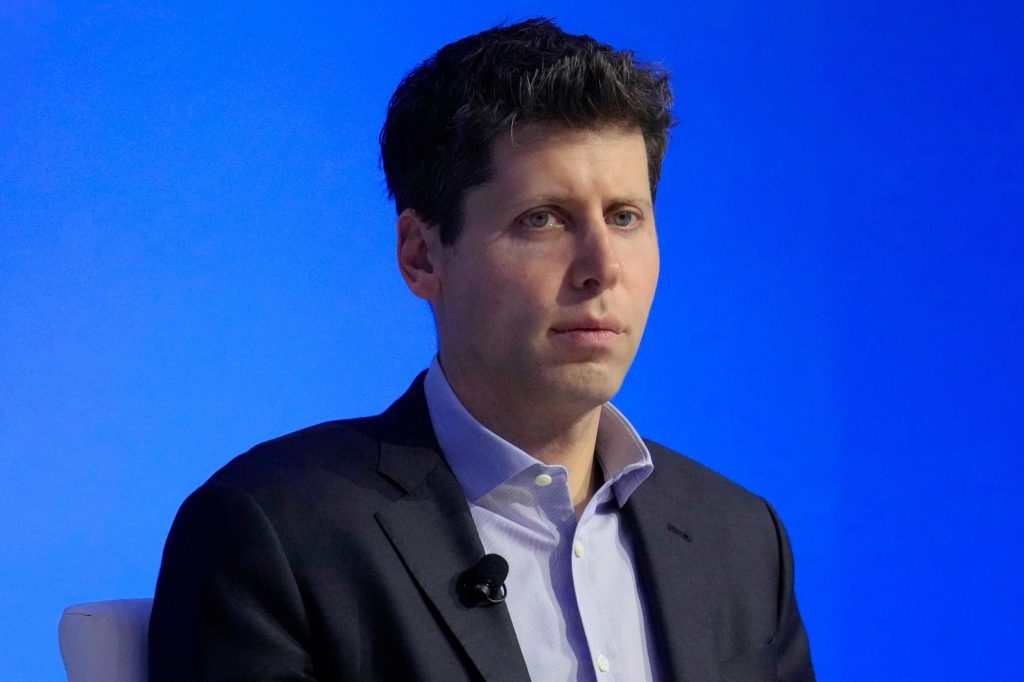By MATT O’BRIEN and HALELUYA HADERO (AP Business Writers)
OpenAI is reinstating CEO Sam Altman to its board of directors and said it has “full confidence” in his leadership after the conclusion of an outside investigation into the company’s turmoil.
The ChatGPT maker hired the law firm WilmerHale to examine the reasons behind the sudden firing and subsequent rehiring of Altman in November. Following several months of investigation, it was determined that Altman’s removal was a result of strained relations and loss of trust between him and the previous board, as announced by OpenAI on Friday. However, the full report was not made public.
OpenAI also revealed the addition of three women to its board of directors: Dr. Sue Desmond-Hellman, a former CEO of the Bill & Melinda Gates Foundation; Nicole Seligman, a former Sony general counsel; and Instacart CEO Fidji Simo.
These actions signify the San Francisco-based AI company's efforts to demonstrate to investors and customers its commitment to overcoming the internal conflicts that nearly led to its downfall last year and garnered international attention.
Altman expressed relief at the conclusion of the situation on Friday, noting his disappointment in individuals leaking information with ulterior motives to damage the company or its mission and create division. He also acknowledged the lessons learned from the experience and apologized for not handling a disagreement with a former board member more gracefully and sensitively.
OpenAI remained largely silent for over three months regarding the reasons behind the firing of Altman by its then-board of directors on November 17. The announcement at that time cited Altman's lack of consistency in communication, hindering the board’s ability to fulfill its responsibilities. He was also removed from the board, along with its chairman, Greg Brockman, who subsequently resigned as the company’s president.
OpenAI has been embroiled in conflicts primarily related to its unique governance structure. Originally established as a nonprofit with the goal of safely developing advanced AI for the benefit of humanity, it has evolved into a rapidly expanding commercial entity still governed by a nonprofit board dedicated to its original mission.
The investigation concluded that the prior board acted within its rights. However, it also determined that Altman’s actions did not warrant his removal, according to OpenAI. The company stated that both Altman and Brockman are the right leaders for the company.
Bret Taylor, the board’s chair, informed reporters on Friday that the review identified a significant breakdown in trust between the prior board and Sam and Greg. It also recognized that the board had acted in good faith, believing that its actions would alleviate some of the challenges it faced and was not anticipating the resulting instability.
Following his sudden removal, Altman, supported by most of OpenAI’s employees and closely allied with business partner Microsoft, orchestrated a return that restored Altman and Brockman to their executive roles while removing board members Tasha McCauley, Helen Toner, and another co-founder, Ilya Sutskever. However, Sutskever retained his position as chief scientist and expressed regret for his part in Altman's removal.
Altman said on Friday that he believes Ilya is fond of OpenAI and hopes they will continue working together, but he did not answer a question about Sutskever’s current position at the company.
When Altman and Brockman came back to the company in November, they did not get their board seats back. Instead, a new board of three men was formed, with Taylor leading, along with Larry Summers and Adam D’Angelo.
Quora and Taylor’s new startup, Sierra, both have their own AI chatbots that use OpenAI technology.
OpenAI hired WilmerHale, a law firm, in December. The firm conducted many interviews and reviewed numerous documents to look into the company’s previous board, current executives, advisers, and other witnesses.
The board stated that they will be making “improvements” to the company’s governance structure. They plan to adopt new corporate governance guidelines, strengthen policies around conflicts of interest, create a whistleblower hotline for anonymous reports, and set up additional board committees.
OpenAI is dealing with other issues, including a lawsuit from Musk, who helped fund the early years of OpenAI. Musk claims that the company is not staying true to its original mission in pursuit of profits.
Legal experts are skeptical about whether Musk’s arguments, based on an alleged breach of contract, will hold up in court.
The lawsuit has brought to light the company’s internal conflicts about its unique governance structure, transparency about its research, and the pursuit of artificial general intelligence.
Taylor stated on Friday that OpenAI’s “mission-driven nonprofit” structure will remain unchanged as it continues to pursue its vision for artificial general intelligence that benefits humanity.
Taylor said that the primary duty is to the mission, but the company was created to serve that mission.
—-
OpenAI has a licensing and technology agreement with The Associated Press, giving OpenAI access to a portion of AP’s text archives.









